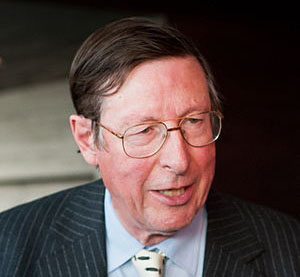Russia has invaded and devastated Ukraine without the smallest provocation. Most North Atlantic Treaty Organization (Nato) nations, led thank goodness by the US — two years ago, we could have expected nothing from the White House — join in condemning President Vladimir Putin’s aggression. Some are supplying military aid.
Yet there is nothing like unanimity in Europe, never mind elsewhere, about appropriate policy responses. The old Cold War certainties, the meticulously prepared plans to make common cause in confrontation scenarios between the Soviet Union and the West, no longer exist.
France seems dangerously close to electing a president, Marine Le Pen, who has openly admired Putin and last week called for rapprochement with Russia once the Ukraine war is over. Heading into a runoff election with President Emmanuel Macron, she has reportedly talked of removing France from Nato’s integrated military, and refuses to endorse Western claims of Russian atrocities in Ukraine.
Hungary’s newly re-elected prime minister, Viktor Orban, is fiercely critical of the Kyiv government. Germany claims to back Nato action, but has yet to provide meaningful military aid, and is funding Putin’s war effort by continuing to buy his gas and oil.
Elsewhere, Israel conspicuously distances itself from Nato because it deems its defense relationship with Russia too important to hazard. India is enthusiastically buying discounted Russian energy and refuses to take a stand alongside the West, despite its alleged adherence to the US-led Quad alliance to contain China.
Pakistan, which seldom agrees with India about whether it is Monday or Tuesday, likewise rejects the Nato line. Imran Khan, now the ex-prime minister, had demanded stridently of Western ambassadors, “Are we your slaves, to follow your orders?â€
South Africa has defended Russia. Brazil and Mexico have declined to join in imposing sanctions, with the latter’s president offering the anodyne justification “we want to have good relations with all the governments in the world.†China, wholly unwilling to break with Russia, has never wavered in its declared commitment to the option of using force to pursue core national interests.
The old global order hinged upon two superpowers exercising an influence over a host of clients, which trended towards authority. The US had an armlock on most of Latin America, as the Soviet Union did on its Eastern European empire. Until the late 20th century, such middle-ranking powers as Britain and France could count on the governments of many of their old colonial possessions to support their foreign-policy objectives.
Turkey’s President Recep Tayyip Erdogan supported the United Nations condemnation of Russia for invading Ukraine, but declines to participate in sanctions. In part, of course, this reflects the complex Turkish relationship with Russia in handling Syria, and the Turks’ purchase of Russian S-400 ground-to-air missiles.
The message of all this equivocation is that the pack of cards, the array of nations that stacked up tidily on either side of the Cold War, today drifts on the wind. It is difficult to anticipate which nations will adopt what attitudes on any given international issue.
Though our politicians and media emphasize “the world’s†condemnation of Russia’s latest aggression, far more nations than we like to admit dislike and resent perceived Western arrogance — we prefer to call it confidence, founded upon achievement.
More than a few care nothing for Ukraine and admire Putin for defying Western hegemony, just as they are happy to traffic with China, indifferent to its dreadful human-rights record.
The world has moved a long way, and not in a direction most of us welcome, since the White House’s 2002 National Security Strategy. At that high point of post-Cold War hubris, the US declared that there was “a single sustainable model for national success: freedom, democracy and free enterprise.â€
President George W Bush’s administration urged that the promotion of free institutions offered “the best chance since the rise of the nation-state in the 17th century to build a world where great powers compete in peace instead of continually preparing for war.â€
That aspiration was admirable. We have since discovered, however, that while it suited those societies that prosper mightily from freedom, technology, entrepreneurialism and liberalism, it has absolutely not suited those that lack such skills or reject such liberties.
Statisticians tell us that the world is becoming a less-violent place, measured by the toll of people dying in conflicts. This may be true, but such numbers take no account of the hundreds of millions obliged to bow to oppression by an institutionalised threat of violence.
We have entered an era of global disorder, a multipolar universe, as was the norm for much of history before World War II but vanished amid the adversarial nuclear stability created by the Cold War.
—Bloomberg
Max Hastings is the author of some 30 books, many about the history of war, including “Inferno†and “Vietnam: An Epic Tragedy 1945-75â€. A former BBC TV correspondent and editor in chief of Britain’s Daily Telegraph, his new book “Abyss: The Cuban Missile Crisis 1962†will be published in September
 The Gulf Time Newspaper One of the finest business newspapers in the UAE brought to you by our professional writers and editors.
The Gulf Time Newspaper One of the finest business newspapers in the UAE brought to you by our professional writers and editors.

